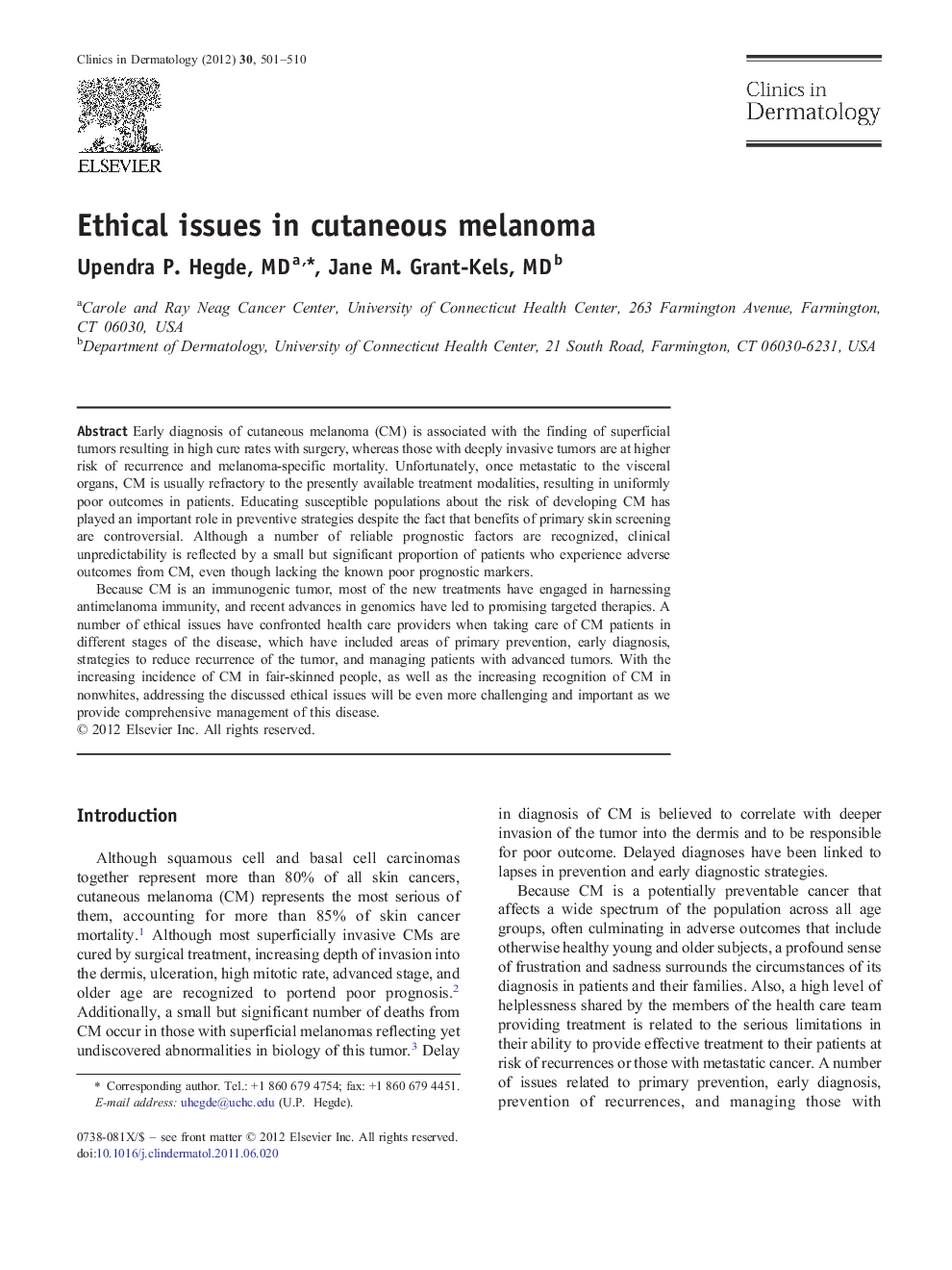| Article ID | Journal | Published Year | Pages | File Type |
|---|---|---|---|---|
| 3194260 | Clinics in Dermatology | 2012 | 10 Pages |
Early diagnosis of cutaneous melanoma (CM) is associated with the finding of superficial tumors resulting in high cure rates with surgery, whereas those with deeply invasive tumors are at higher risk of recurrence and melanoma-specific mortality. Unfortunately, once metastatic to the visceral organs, CM is usually refractory to the presently available treatment modalities, resulting in uniformly poor outcomes in patients. Educating susceptible populations about the risk of developing CM has played an important role in preventive strategies despite the fact that benefits of primary skin screening are controversial. Although a number of reliable prognostic factors are recognized, clinical unpredictability is reflected by a small but significant proportion of patients who experience adverse outcomes from CM, even though lacking the known poor prognostic markers.Because CM is an immunogenic tumor, most of the new treatments have engaged in harnessing antimelanoma immunity, and recent advances in genomics have led to promising targeted therapies. A number of ethical issues have confronted health care providers when taking care of CM patients in different stages of the disease, which have included areas of primary prevention, early diagnosis, strategies to reduce recurrence of the tumor, and managing patients with advanced tumors. With the increasing incidence of CM in fair-skinned people, as well as the increasing recognition of CM in nonwhites, addressing the discussed ethical issues will be even more challenging and important as we provide comprehensive management of this disease.
